Q&A: What does latest Sports Direct loan mean for Rangers?
- Published
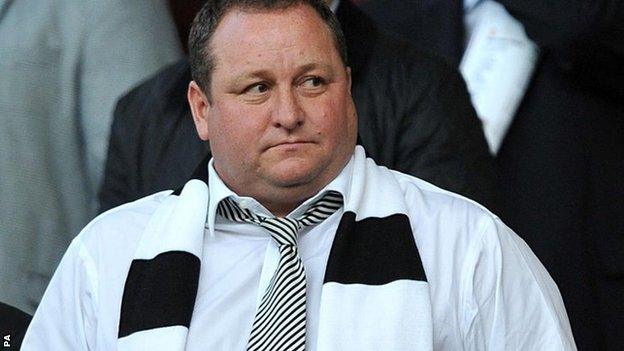
Ashley's Sports Direct have strengthened their hand at Ibrox by way of debt rather than equity
The board of Rangers International Football Club has accepted a £10m loan offer from Sports Direct, the company owned by Mike Ashley.
He is a minority shareholder in RIFC and an alternative funding offer was made by another group of RIFC shareholders.
Two long-time Ashley associates, Derek Llambias and Barry Leach, currently sit on the RIFC board, but the directors insist that the "terms of the [loan] facility are fair and reasonable". The funding will meet short-term working capital needs, as well as pay back a £3m loan Ashley made late last year.
The future ownership and running of the club remains uncertain though, so BBC Scotland looks at the questions raised by this latest development.
Why is it significant that Rangers have accepted a £10m loan from Sports Direct?
In effect, the owner of Sports Direct, Mike Ashley, has strengthened his hand at Ibrox by way of debt rather than equity.
With the Scottish Football Association having rejected the Newcastle United owner's request to raise his stake above 10%, Ashley had to provide finance to exert further control.
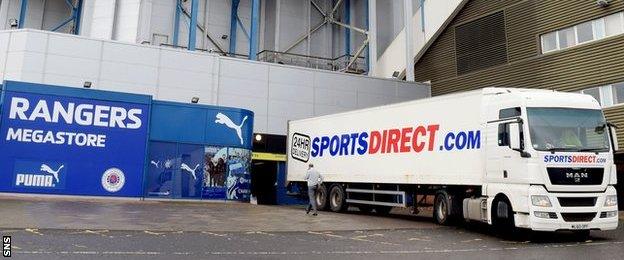
Sports Direct has effective control over Rangers' retail operation
The devil is in the detail of the conditions of his loan facility, but Sports Direct has a floating charge as well as security over Murray Park, Edmiston House, the Albion Car Park and the club's registered trademarks.
The floating charge allows Sports Direct to appoint the administrator should Rangers default on the loan, or power of veto should another creditor seek to put the business into administration.
Sports Direct was also transferred 26% of Rangers' share in Rangers Retail Limited (RRL), the commercial joint venture with the sports retail company.
The Rangers board has also agreed that all shirt sponsorship revenue generated from 2017-18 onwards, and for the duration of the loan facility, will be paid to Rangers Retail Limited.
The initial £5m tranche of the loan facility will quickly be taken up by paying back the £3m loan Ashley provided late in 2014 and working capital needs.
The second tranche of £5m could, therefore, be required soon, although Sports Direct will carry out "due diligence" before making it available for draw down. This could leave room for further negotiation on the terms and conditions, in Sports Direct's favour.
There is no repayment date for the first tranche, but the second tranche must be paid back within five years of it being drawn down.
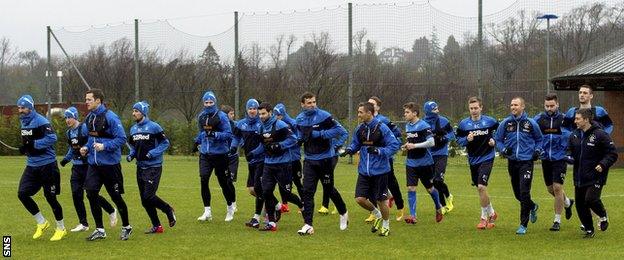
Rangers have needed loans for working capital, including player wages
So, in return for loaning Rangers money, Sports Direct now has a 75% stake in RRL, effectively allowing it full control. It could, for example, issue new shares, which Rangers do not have the funds to purchase, and so permanently rebalance the control of RRL from the original 51/49% split in Rangers' favour.
What does Ashley want?
It is clear that he is protecting his retail agreement by increasing its scope and the extent of Sports Direct's control over it. He cannot own a larger stake in Rangers, unless he sells Newcastle, but he can control the retail operation, which is worth an estimated £4m a season to Sports Direct, and so limit Rangers' income from a critical revenue stream.
When Ashley offered the RIFC board a £10m loan in October, he sought many of the conditions that he has now received, but that proposal was rejected by Graham Wallace, then the chief executive, Phil Nash, then the finance director, and Norman Crighton, then a non-executive director, as not being in the best interests of the club.
All three have since been removed by the board, with new chief executive Derek Llambias and, later, Barry Leach being appointed as directors.
Where does this leave the general meeting requisitioned by Dave King?
The GM will still take place, and any shareholders who were yet to make a decision on how they will vote may now be supportive of change given that the club is in debt to Sports Direct, at a time when it does not raise enough revenue to meet working capital needs.
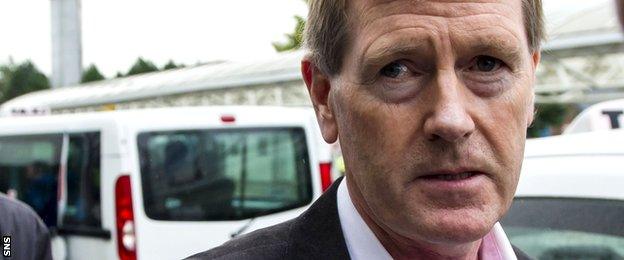
King wants representation on the Rangers board
Shareholder Dave King's resolutions were for the removal of all four current directors - Llambias, Leach, chairman David Somers and non-executive James Easdale - and the appointment of himself, former Rangers director Paul Murray and former managing director of Tennents Caledonian brewery, John Gilligan.
This is where the detail of the loan facility becomes interesting though. As part of his £3m loan, Ashley was entitled to appoint two directors and Llambias was identified as his appointment in a Stock Exchange announcement when he joined the board.
Those terms are cancelled once the £3m is paid back, but under the terms of the new loan facility, Sports Direct is entitled to appoint two directors for the length of the facility.
Ultimately, the GM can deliver control of the board to King, but Ashley's debt and hold over the retail agreement means that he has to be dealt with and Ashley has sought to ensure that he has as strong a hand as possible.
So what happens next?
In the absence of further developments, the GM goes ahead, the board could be changed and new directors need to either accommodate two Sports Direct appointments, or pay back the outstanding loans.
The latter would also cancel all the conditions Sports Direct has received in return for providing the £10m. Again, the fine detail of the facility will be interesting if, for instance, it includes penalty clauses for early repayment.
- Published28 January 2015
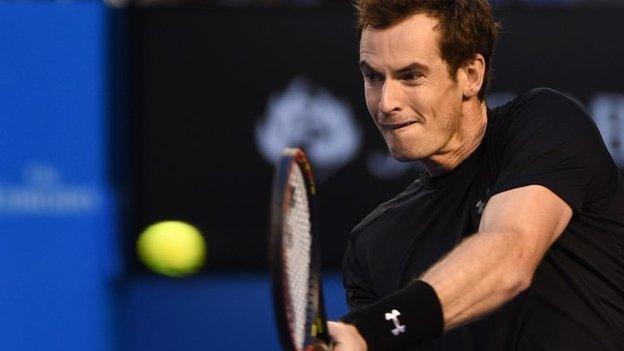
- Published28 January 2015
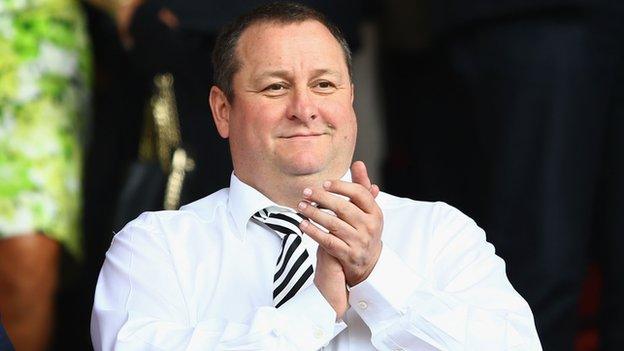
- Published27 January 2015
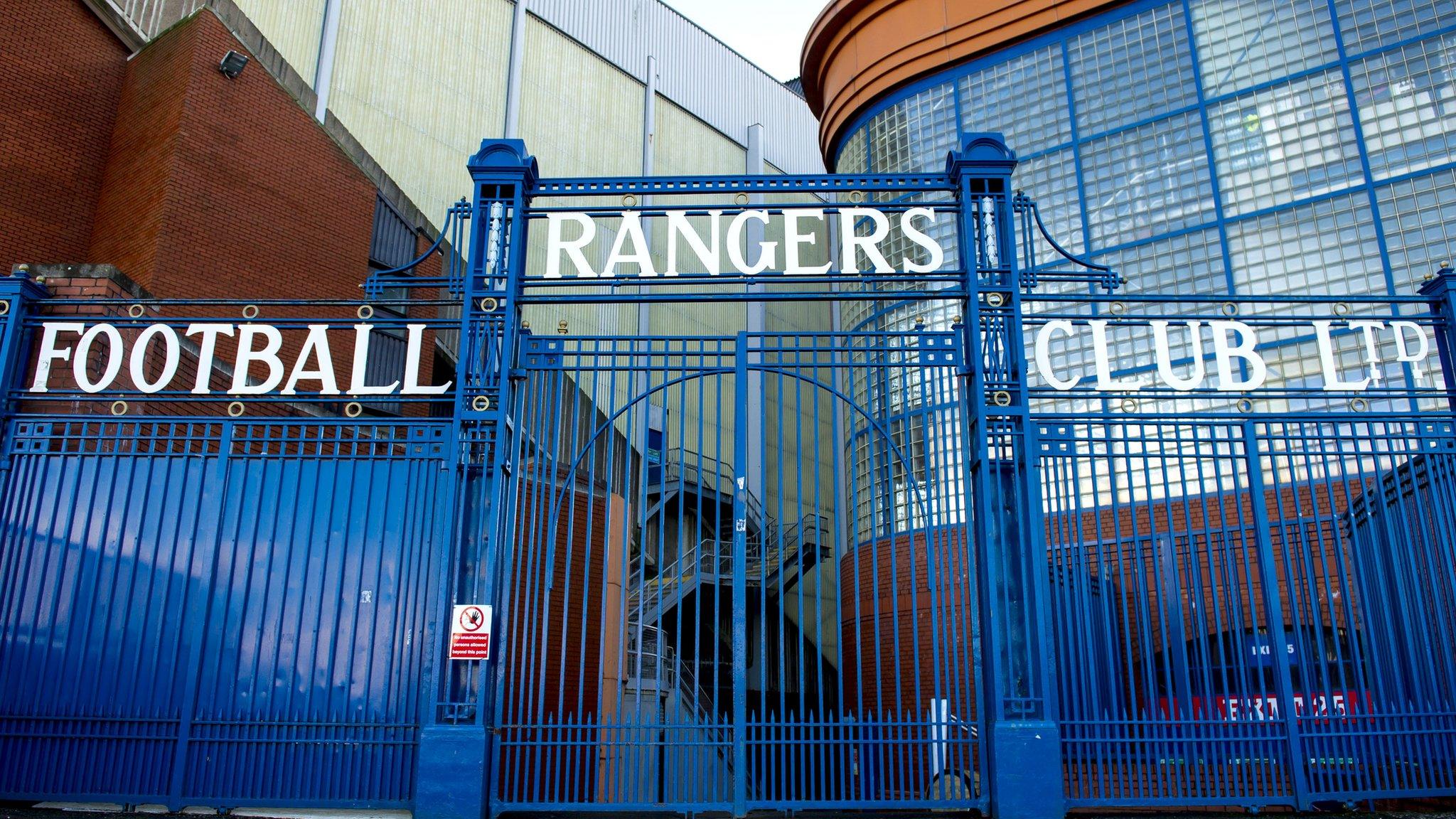
- Published27 January 2015
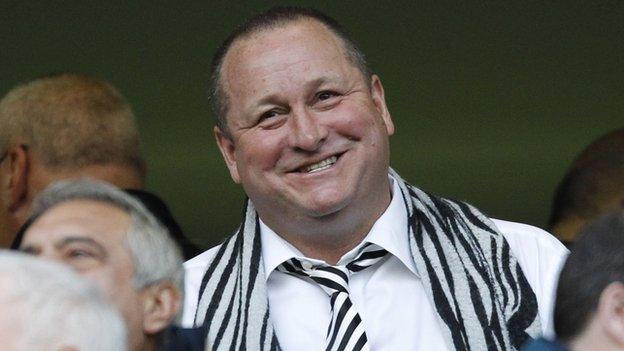
- Published20 June 2016

- Published7 June 2019
